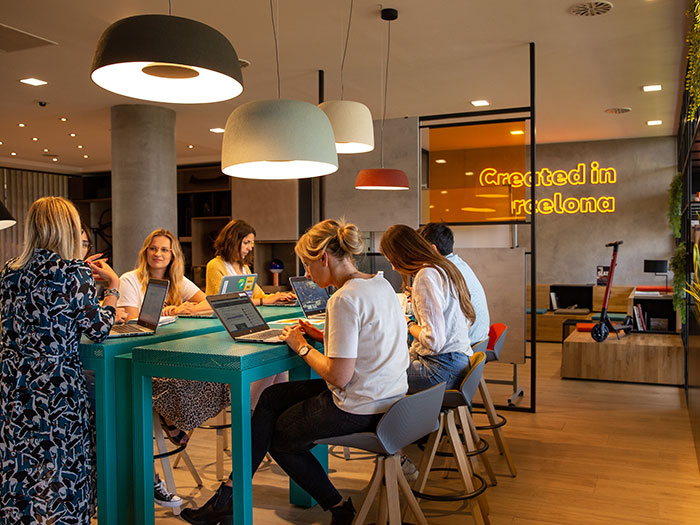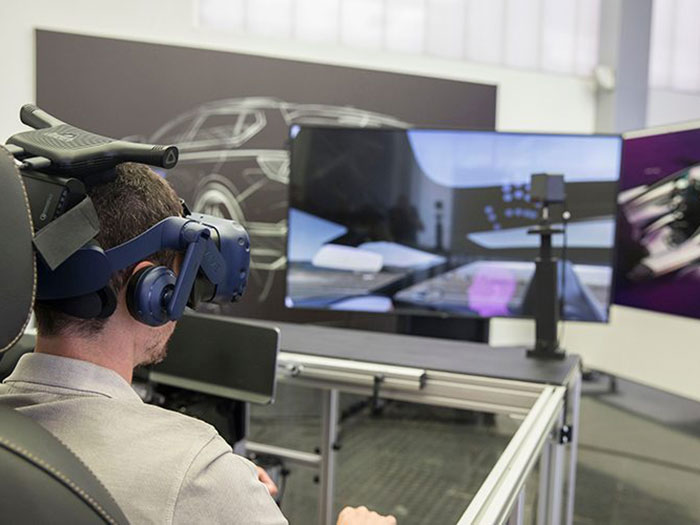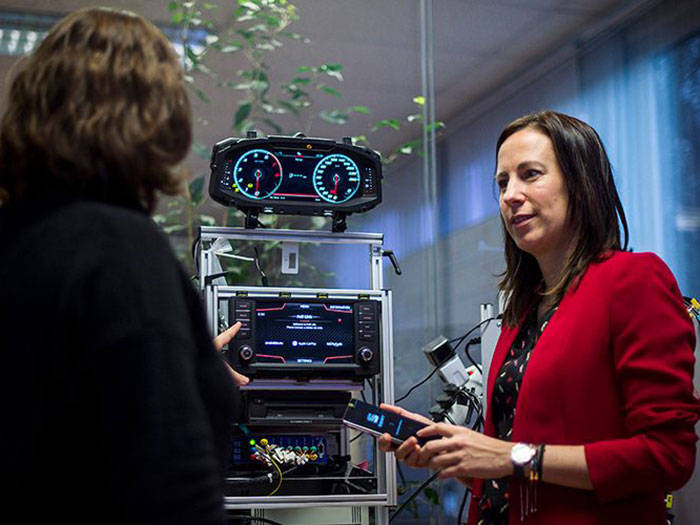Finding the best talent in the digital era: the challenge of HR
Attracting and retaining the brightest talents is one of today’s biggest challenges for companies. Every sector needs the same digital skills, and new generations are driven by very specific priorities.
The digital era has brought unprecedented disruption to every sector and at every level. Never before have companies faced a similar challenge: recruiting the best digital talents and retaining them for as long as possible. New and expert digital profiles are needed across all sectors and companies are facing intense competition to fill these roles.
In addition, the new generations are driven by different criteria when it comes to choosing a job. Human resources teams must adapt quickly to this new situation. What are the elements and the strategies to attract digital talent today?
Face up to the change

“The only way we can face the transformation of the sector is by having the best professionals”, says Oliwia Puppel, head of Talent Acquisition at SEAT. “In the search for this talent it has never been so difficult to find the perfect match between the company and the person”, she adds. Not only have the ground rules changed, but so have the participants.
In addition to the profiles traditionally linked to their sector, all companies need professionals with whom they can tackle the challenges of digitalisation. The European Commission estimates that there are up to 750,000 unfilled jobs for these specialists.
The human resources revolution

This talent 2.0 is so coveted that “it represents a real 180-degree change in our work. Before, it was the candidates who came to us for a job offer. Now we have to go after them: know who they are and how to convince them”, explains Oliwia.
But at the same time, technology is advancing so fast that roles required by the job market today can change just as fast: an essential profile today may no longer be required tomorrow. That's why in addition to training and experience, companies are looking at other skills. “At SEAT we count on people who question the status quo, who are not afraid to make mistakes, who learn from their failures; people who are creative and know how to work in a team. In short, we are looking for forward thinkers”, says Oliwia.
Flexibility and balance
Millennials (those born between 1980 and 2000) are now the largest group in the workforce. They and their successors, Generation Z, are more focused on aspects beyond work and pay, when it comes to accepting a job. The most highly valued factor is flexibility. For them, work is an activity, not a place. And they can do their job from any place and at any time with new technologies and thus balance not only their family life but also their hobbies.
Furthermore, they want to work for responsible companies that are socially and environmentally committed and are attracted to the brands they admire as consumers. They give priority to being part of projects that inspire them, without hierarchical structures, but with leaders who they can learn from. It is a clear change in priorities that human resources teams have to take into consideration.
Companies and university

The strategy to getting the best talent starts long before candidates have even started looking for a job. “It is important to establish a link with universities and develop clear methods of getting these coveted profiles to see the company as an interesting destination where they can develop their potential”, says Oliwia. One way to interact with talent is through experiences like SEAT's KickStart Challenge, where students demonstrate their skills by solving challenges. Those selected are eligible for internships of up to 12 months in different areas.
Not only it is important to attract the best profiles, but also to retain them. There is an increasing diversity in the workforce with different generations and different cultures. The key is to individualise, to follow up on each person to see how their professional growth and well-being can be promoted.
Always on the move
Although “a permanent job for life” has been the holy grail for years, the profile of a restless professional is gaining ground.
According to a survey by The Guardian, 90% of millennials do not intend to have the same job for more than five years. “SEAT has always been a reliable employer, with workers who have been with the company for more than 40 years. But now we're facing another reality. It means more work for us in human resources, with constant recruitment processes to continuously integrate new roles and new ways of working”, Oliwia concludes.
Source: SEAT S.A.
